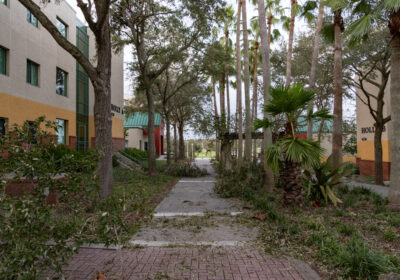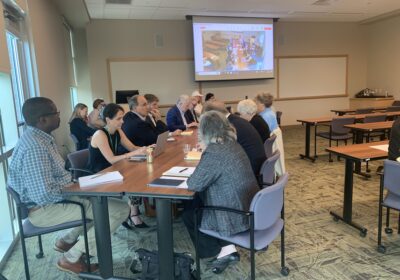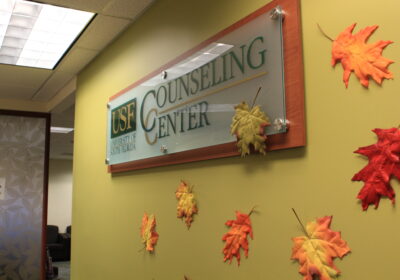Psycho-oncology alternative method to treat breast cancer

The month of October is breast cancer awareness month. There’s several ways of treating breast cancer including psycho-oncology. SPECIAL TO THE ORACLE
The recipient of a $2.8 million grant for a five-year research program, USF’s College of Nursing is the only research program receiving funding from the National Cancer Institute (NCI) for a non-pharmacological approach to treat breast cancer patients, according to Cecile Lengacher, professor and director of the pre-doctoral fellowship program at the College of Nursing.
Going into the second year of the grant, the College is in collaboration with the Moffitt Cancer Center and the Morsani College of Medicine to provide a complementary alternative therapy treatment meant to ease patients’ cognitive functioning.
“Psycho-oncology is an area of research on the psychological effects of cancer patients,” Lengacher said.
A breast cancer survivor in remission since 2002, Lengacher is personally aware of the positive results of the treatment. Now in implementing the program for her patients, Lengacher has emphasized the focus on mindfulness-based stress reduction.
“Our current program is the Efficacy of Mindfulness Based Stress Reduction (MBSR) of Cognitive Impairment Among Breast Cancer Survivors,” Lengacher said.
The two-hour, six-week program teaches the patients four meditative techniques: a mindfulness meditation focusing on the breath, a concentration mental full body scan, Hatha yoga and walking meditation.
“Chemotherapy has been known to affect the memory of breast cancer patients, a syndrome called ‘chemo brain,’” Lengacher said.
Designed by Jon Kabat-Zinn at the University of Massachusetts at Worcester, MBSR was a program for anybody, but Lengacher and her team added modifications to treat breast cancer survivors, too, with their fear of recurrence.
“We teach them how to be grateful for today. By meditating and concentrating on the moment, we teach them not to loom on their fears of the past and fears of the future,” Lengacher said.
With approximately 40 patients currently enrolled, the program is projected to enroll 330 total patients for the upcoming five-year trial. Recruiting patients from Moffitt Cancer Center, Morsani College of Medicine and Florida Hospital, qualifications to be accepted for the program include a diagnosis of between stage one and three and having undergone chemotherapy and radiation.
Additionally, Lengacher is working with USF students in the MBSR research program. A student who works closely with Lengacher is Carly Paterson, who received a postdoctoral fellowship at the NCI. Lengacher said she would encourage any USF students who have interest in psycho-oncology to reach out to her program.
Regardless of age, Lengacher said USF students should implement breast self-examinations to catch early signs of breast cancer.
“If they are high risk within their family, it is important to visit a physician for a check-up,” Lengacher said.
Another piece of advice, she said, is to be aware of stress levels.
“The increase in production of cortisol can affect the body’s immune system by eliminating natural killer cells. This makes our bodies more susceptible to disease,” Lengacher said.
Lengacher emphasizes the effectiveness of the program and how it can be an alternative treatment for breast cancer survivors.
“There is great hope for women in our society for this problem,” said Lengacher.






